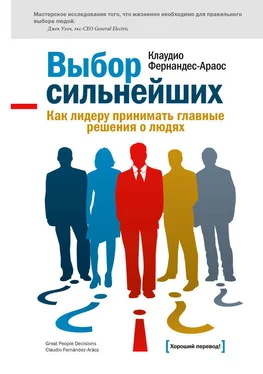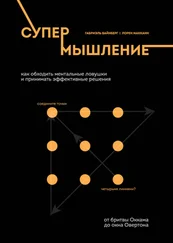Jack Welch and Suzy Welch, Winning (HarperCollins, 2005), pp. 72–73.
Jack Welch and Suzy Welch, Winning (HarperCollins, 2005), p. 35.
Frederick F. Reichheld, Loyalty Rules: How Today’s Leaders Build Lasting Relationships (Bain & Company, 2001), p. 7.
Frederick F. Reichheld, ed. The Quest for Loyalty: Creating Value through Partnership (Boston: Harvard Business School Press, 1990), Part II, Chapter 3, pp. 67–72.
James M. Kouzes and Barry Z. Posner, The Leadership Challenge, 3rd ed. (Jossey-Bass, 2002), p. 25.
John T. Horn, Dan P. Lovallo, and S. Patrick Viguerie, “Learning to Let Go: Making Better Exit Decisions,” The McKinsey Quarterly 2, 2006: 64–75.
THE FOCUS online ( http://www.ezifocus.com/content/thefocus/issue/article.php/article/54300471), vol. X/l, 2006. Keynote topic by Jim Collins: “Filling the Seats: How People Decisions Help Build a Great Company.”
Frank L. Schmidt and John E. Hunter, “The Validity and Utility of Selection Methods in Personnel Psychology: Practical and Theoretical Implications of 85 Years of Research Findings,” Psychological Bulletin 124(2), 1998: 262–274.
Boris Groysberg, Andrew N. McLean, and Nitin Nohria, “Are Leaders Portable?” Harvard Business Review, May 2006: 92–100.
Neil Anderson and Vivian Shackleton, Successful Selection Interviewing (Blackwell Publishers, 1993), p. 30.
Критерий совестливость обладает крайне низким коэффициентом валидности (около 0,20). Чтобы разобраться с последствиями подобного низкого уровня, следует возвести уровень коэффициента в квадрат, чтобы определить процент отклонения результативности, который объясняется этим критерием. Возводя в квадрат 0,20, мы получаем 0,04, что означает, что лишь около 4 % разницы результативности работы может быть объяснено этим критерием. Иными словами, он обладает крайне ограниченной полезностью.
Этот пример детально обсуждается автором Annie Murphy Paul в The Cult of Personality (Free Press/Simon & Schuster, 2004).
Daniel Goleman, Emotional Intelligence: Why It Can Matter More Than IQ (Bantam Books, October 1995).
David C. McClelland, “Testing for Competence Rather Than for ‘Intelligence’,” American Psychologist, January 1973.
Richard E. Boyatzis, The Competent Manager: A Model for Effective Performance (New York: John Wiley & Sons, 1982).
Lyle M. Spencer, Jr. and Signe M. Spencer, Competence at Work (New York: John Wiley & Sons, 1993).
Cary Cherniss and Daniel Goleman, The Emotionally Intelligent Workplace: How to Select for, Measure, and Improve Emotional Intelligence in Individuals, Groups and Organizations (Jossey-Bass, 2001), pp. 182–206.
The CREIO web site ( http://www.eiconsortium.org/) Сайт приводит широкий список источников, которые подтверждают данную мысль, наряду с описанием подхода «Эмоциональные компетенции» и возможностью скачать несколько относящихся к теме докладов и работ.
Richard E. Boyatzis, Elizabeth D. Stubbs, and Scott N. Taylor, “Learning Cognitive and Emotional Intelligence Competencies through Graduate Management Education” (Case Western Reserve University, Academy of Management Learning and Education, 2002), vol. 1, no. 2, pp. 150–162.
Richard E. Boyatzis, “Competencies Can Be Developed, But Not in the Way We Thought,” HEC Journal, Capability volume 2(2), 1996.
Daniel Goleman, Richard Boyatzis, and Annie McKee, Primal Leadership: Realizing the Power of Emotional Intelligence (Harvard Business School Press, 2002), pp. 111–112.
David C. McClelland and David H. Burnham, “Power Is the Great Motivator,” Harvard Business Review, January 2003: 117–126.
См., например, Gretchen M. Spreizer, Morgan W. McCall, Jr., and Joan D. Mahoney, “Early Identification of International Executive Potential,” Journal of Applied Psychology 82(1), 1997: 6–29.
Jack Welch and Suzy Welch, Winning (HarperCollins, 2005), p. 83.
Интернет-издание корпоративного журнала THE FOCUS online ( http://www.ezifocus.com/content/thefocus/issue/article.php/article/54300471), vol. X/l, 2006. Авторская тема номера – Jim Collins: “Filling the Seats: How People Decisions Help Build a Great Company.”
Boris Groysberg, Ashish Nanda, and Nitin Nohria, “The Risky Business of Hiring Stars,” Harvard Business Review , May 2004: 92–100.
R. Meredith Belbin, Management Teams (Butterworth Heinemann, 1996), pp. 9–18.
Boris Groysberg, Jeffrey T. Polzer, and Hillary Anger Elfenbein, “Too Many Cooks Spoil the Broth: How Too Many High Status Individuals Decrease Group Effectiveness,” Harvard Business School Working Paper Series No. 06–002, 2005.
Boris Groysberg, Andrew N. McLean, and Nitin Nohria, “Are Leaders Portable?” Harvard Business Review, May 2006: 93–100.
Более детально я обсуждаю процесс подтверждения ключевых компетенций при проведении поиска в своей статье “Hiring Without Firing” in the July – August 1999 issue of Harvard Business Review, pp. 109–120.
История Кеплера описана у Gerd Gigerenzer and Peter M. Todd, Simple Heuristics That Make Us Smart (Oxford University Press, 2000). См. главу “From Pride and Prejudice to Persuasion,” p. 287.
Valerie I. Sessa, and Jodi J. Taylor, The Executive Selection: Strategies for Success (Center for Creative Leadership, Jossey-Bass/Wiley, 2000), p. 65.
“The War for Talent,” The McKinsey Quarterly 3, 1998: 47.
В этом нет нашего эгоистического интереса: наш гонорар не зависит от того, будет ли финально назначенный кандидат внешним или внутренним.
Читать дальше
Конец ознакомительного отрывка
Купить книгу












